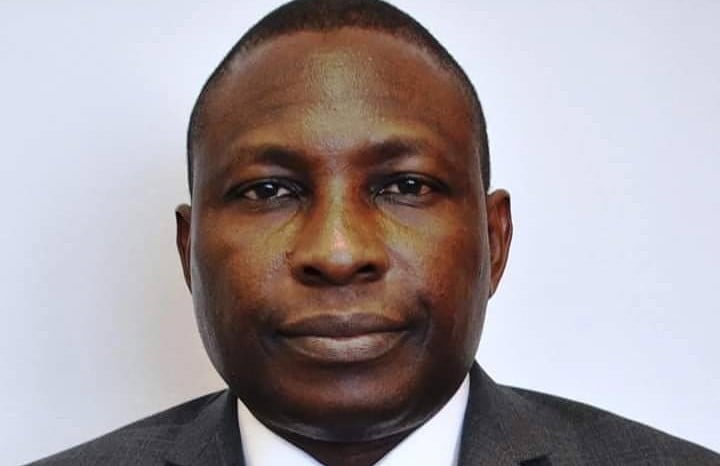BY OZUMI ABDUL
Though he has been at the helm of the Economic and Financial Crimes Commission (EFCC) for just a year, but paradoxically, his impressive achievements and significant milestones suggest a depth of experience that belies his short tenure.
Mr. Olanipekun Olukayode has distinguished himself as a transformative leader, breathing new life into Nigeria’s foremost anti-graft agency. Since its inception two decades ago, the EFCC has struggled with public perception and effectiveness. However, under Olukayode’s leadership, the Commission has seen a resurgence, marked by significant achievements that have set a new benchmark in the fight against corruption.
Despite his short stint as the czar of the country’s foremost anti graft agency, Mr. Olukayode’s tenure has been characterized by innovative strategies and a renewed focus on transparency and accountability. In fact, his approach has not only streamlined operations, but has also enhanced the Commission’s reputation, which had been tarnished by past controversies; ensuring that credibility and impact are restored.
By prioritizing rule of law and international best practices, he has re-established the EFCC as a credible force against financial crimes.
Advertisement
So, it was not surprising when his dedication to the anti-graft mission was recognized on July 6, 2024, as he was awarded the title of Nigeria’s foremost graft accountability champion at the Nigeria Excellence Awards in Public Service, organized by The Best Strategic PR in collaboration with the Office of the Secretary to the Government of the Federation.
Away from the restoration of the commission’s battered image, one of the standout aspects of Olukayode’s leadership has been the aggressive pursuit of high-profile cases. Since October 18, 2023, the EFCC has charged three former governors—Yahaya Bello of Kogi, Abdulfatah Ahmed of Kwara, and Darius Ishaku of Taraba—on various corruption-related offenses. For instance,
Bello faces multiple charges across different courts, including allegations of money laundering totaling over N190 billion.
Advertisement
The Commission has also pursued cases against former ministers, including Saleh Mamman and Olu Agunloye, reflecting a commitment to tackling corruption at all levels of government. In total, the EFCC secured an impressive 3,455 convictions during Olukayode’s first year, underscoring the effectiveness of his leadership.
In the area of financial recoveries, which is one of the core responsibilities of the EFCC, under Olukayode’s stewardship, the agency has made substantial financial recoveries, totaling over N248 billion, alongside impressive sums in foreign currencies.
These recoveries illustrate the Commission’s relentless pursuit of financial accountability and its role in restoring public confidence in Nigeria’s financial systems.
Also worthy of mentioning as one of the key achievements of the EFCC’s supremo is that of the establishment of the Special Task Force. The introduction of this special unit in the EFCC has endeared the commission to crack down on the naira abusers, and put a prompt stop to this unpatriotic act.
Advertisement
Force against Naira Abuse has further solidified the EFCC’s commitment to curbing currency mutilation and dollarization, resulting in over 35 convictions in just one year. Notable high-profile convictions include social media figures like Idris Okuneye, popularly known as Bobrisky, and Oluwadarasimi Omoseyin, signaling a comprehensive approach to public corruption and the misuse of national currency.
Further more, Olukayode has also expanded the EFCC’s collaborative efforts both regionally and internationally. As the President of the Network of Anti-Corruption Institutions in West Africa, he has fostered stronger ties among ECOWAS member states to combat financial crimes. His leadership culminated in the groundbreaking visit of FBI Director Christopher Wray to Nigeria, marking a historic collaboration between the EFCC and the FBI.
Moreover, partnerships with law enforcement agencies from countries like Canada and Spain have yielded significant results, including the return of recovered assets to victims of fraud. These collaborations are a testament to Olukayode’s commitment to tackling transnational crime and ensuring justice for those affected by corruption.
Also, proactively, recognizing that prevention is equally crucial in the fight against corruption, Olukayode has prioritized fraud risk assessments across ministries and agencies, alongside the establishment of a new Fraud Risk Assessment and Control department. Additionally, the launch of an Inter-Faith Manual aims to instill anti-corruption values within communities, demonstrating a holistic approach to corruption prevention.
Advertisement
Looking ahead, plans for a Cybercrime Research Centre within the new EFCC Academy reflect Olukayode’s vision for a future-oriented anti-corruption strategy that encompasses technological advancements and youth empowerment.
Despite these EFCC’s numerous bold steps to combat corruption under Olukayode, charging several public officials and addressing systemic corruption in Nigeria, however, the landscape of anti-corruption appears to be increasingly perilous, as evidenced by the recent legal contestation the commission faces.
Advertisement
Notably, human rights activist and lawyer Femi Falana (SAN) has emerged as a vocal defender of the EFCC, amidst these challenges. His remarks were prompted by the controversial stance taken by Dr. Olisa Agbakoba (SAN), former president of the Nigerian Bar Association, who has asserted that the EFCC is an “unlawful organization.”
This assertion, reportedly backed by some state governments that have filed lawsuits challenging the commission’s constitutionality, poses a significant threat to the EFCC’s operations.
Advertisement
In a letter dated October 17, 2024, Falana addressed the Senate President, Senator Godswill Akpabio, and the Speaker of the House of Representatives, Tajudeen Abbas, firmly rejecting Agbakoba’s claims.
He pointed out that Agbakoba failed to cite any legal precedent or Supreme Court decision that would support his assertion regarding the EFCC’s constitutionality. Falana emphasized that the legal provisions governing the EFCC do not differentiate among federal, state, or local governments, underscoring the comprehensive nature of the commission’s mandate.
Advertisement
Falana’s reference to the case of Olafisoye v. FRN (2004) serves to reinforce his argument that the statutory framework applicable to the EFCC is robust and intended to apply uniformly across different levels of government. His critique of Agbakoba’s position reflects a broader concern: that undermining the EFCC could have dire consequences for Nigeria’s ongoing battle against corruption, a fight that already appears to be provoking a backlash from those entrenched in corrupt practices.
It is an apparent that the EFCC faces not only the dangers posed by corrupt actors but also the legal and political maneuvers that threaten its existence.
However, despite naysayers and cynics’ penchants to discrediting his marvelous works, Olanipekun Olukayode’s first year as EFCC Chairman has been nothing short of transformative.
His innovative approaches, commitment to high-profile prosecutions, financial recoveries, and international collaborations have revitalized the Commission and restored its standing in the fight against corruption. In fact, hopes are high that Nigeria would soon be free from the shackles of economic and financial crimes.
Abdul is a Kano-based journalist
Views expressed by contributors are strictly personal and not of TheCable.










